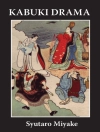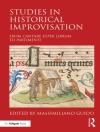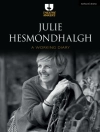This book explores how citizenship is differently gendered and performed across national and regional boundaries. Using ‘citizenship’ as its organizing concept, it is a collection of multidisciplinary approaches to legal, socio-cultural and performative aspects of gender construction and identity: violence against women, victimhood and agency, and everyday issues of socialization in a globalized world. It brings together scholars of politics, media, and performance who are committed to dialogue across both nation and discipline.
This study is the culmination of a two-year project on the topic of ‘Gendered Citizenship’, arising from an international collaboration that has sought to develop a comparative and yet singular perspective on performance in relation to key political themes facing our countries of origin in the early decades of this century. The research is interdisciplinary and multinational, drawing on Indian, European, and North and South America
n contexts.
Tabella dei contenuti
List of Illustrations.- Acknowledgements.- Notes on Contributors.- 1. Introduction; Janelle Reinelt, Bishnupriya Dutt and Shrinkhla Sahai.- Introduction to Part 1.- 2. The Dilemmas of Performative Citizenship; Shirin Rai.- 3. Making Citizenship Familiar: ‘Truth’ Tales and the Partition Archive(s); Anupama Roy.- 4. When State Policy Refracts the Mother; Amrita Nandy and Sneha Banerjee.- 5. Spaces of Appearance, Politics of Exposure: Queer Publics, Sexual Justice and Activism in Eastern Europe and India; Ameet Parameswaran and Milija Gluhovic, – 6. Mapping the Nation: Performance Art in India and Narratives of Nationalism and Citizenship; Shrinkhla Sahai.- 7. Traversing Sites, Traversing History: Practicing Citizenship through Art; Anuradha Kapur.- Introduction to Part 2.- 8. Unmasking the Face of Gendered Citizenship: Anupama Chandrasekhar’s Acid and Free Outgoing; Elaine Aston.- 9. The Legal Unspeakable: Rape in 1980s Bombay Cinema; Ranjani Mazumdar.- 10. Murderous Maids: Reading Contemporary Migrant Domestic Labour Through Genet’s Maids; Silvija Jestrovic.- 11. ‘India’s Daughter’ in India – Old questions, New Answers?; Nivedita Menon.- 12. The ‘Glasgow Girls’: Many Faces of Child Asylum Seekers; Susan Haedicke.- Introduction to Part 3.- 13. Is a Trafficked Woman a Citizen? Survival and Citizenship in Performance; Janelle Reinelt.- 14. ‘Processing’ Vulnerability, Trauma, and Recovery for Women Victims: Rehabilitation Through Tools from Performance; Urmimala Sarkar Munsi.- 15. Becoming Citizens: Loss and Desire in the social reintegration of guerrilla ex-combatants in Colombia; María Estrada-Fuentes.- 16. Laws and Marginalised Bodies: Child Labour Laws and Circus as a Site of Negotiations; Aastha Gandhi and Bishnupriya Dutt.- 17. Sexuate Agency and Relationality in Witnessing Kashmir Violence; Inshah Malik and Manola K. Gayatri.- 18. Epilogue: The Artist as Citizen: Resisting official history.- Index.
Circa l’autore
Bishnupriya Dutt is Professor and Dean in the School of Arts and Aesthetics at Jawaharlal Nehru University, India, and serves on the executive committee of IFTR.
Janelle Reinelt is Emeritus Professor at the University of Warwick, UK, and former President of IFTR.
Shrinkhla Sahai is completing her Ph D at Jawaharlal Nehru University, India, and is an independent media critic, radio professional and dancer in Delhi.












